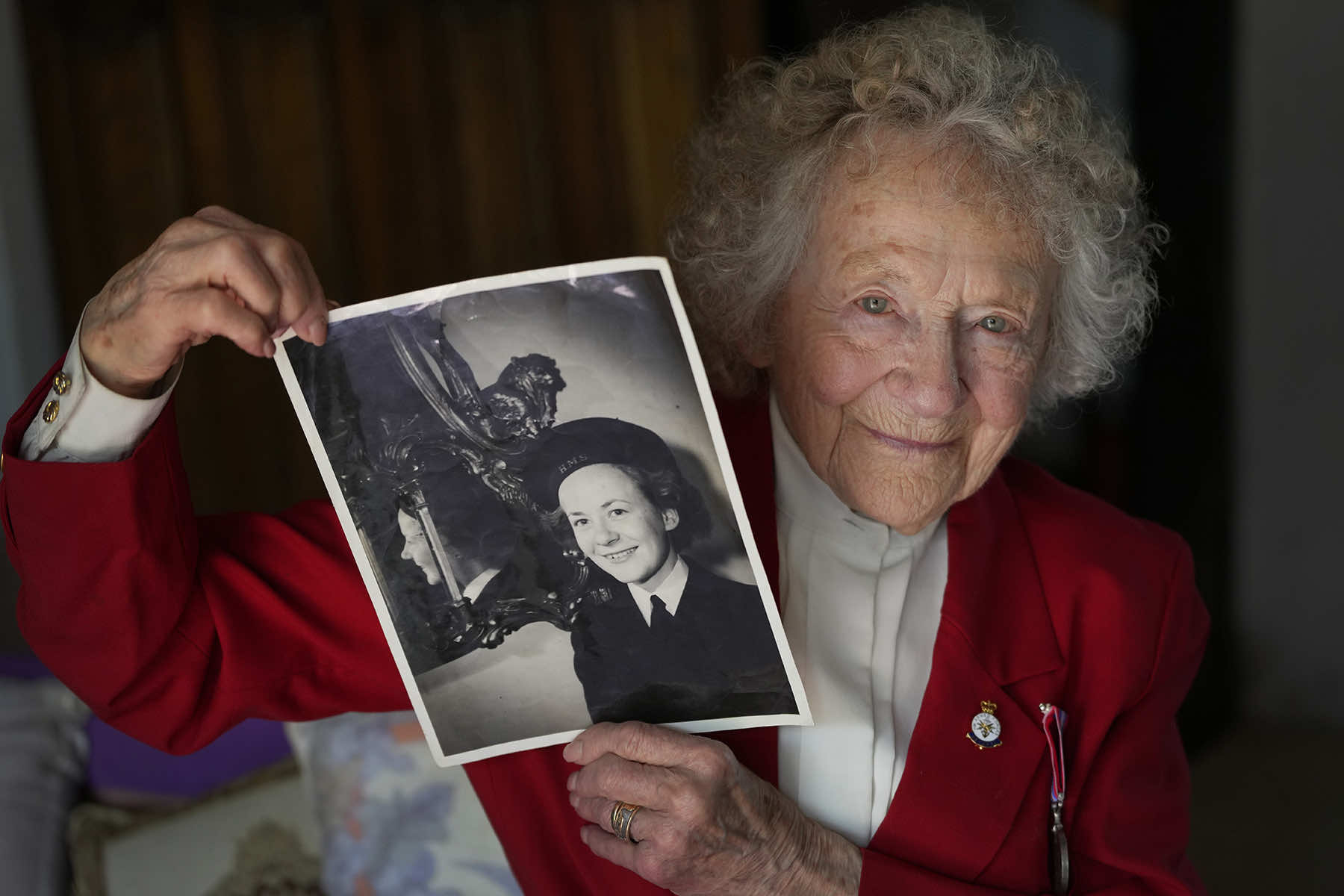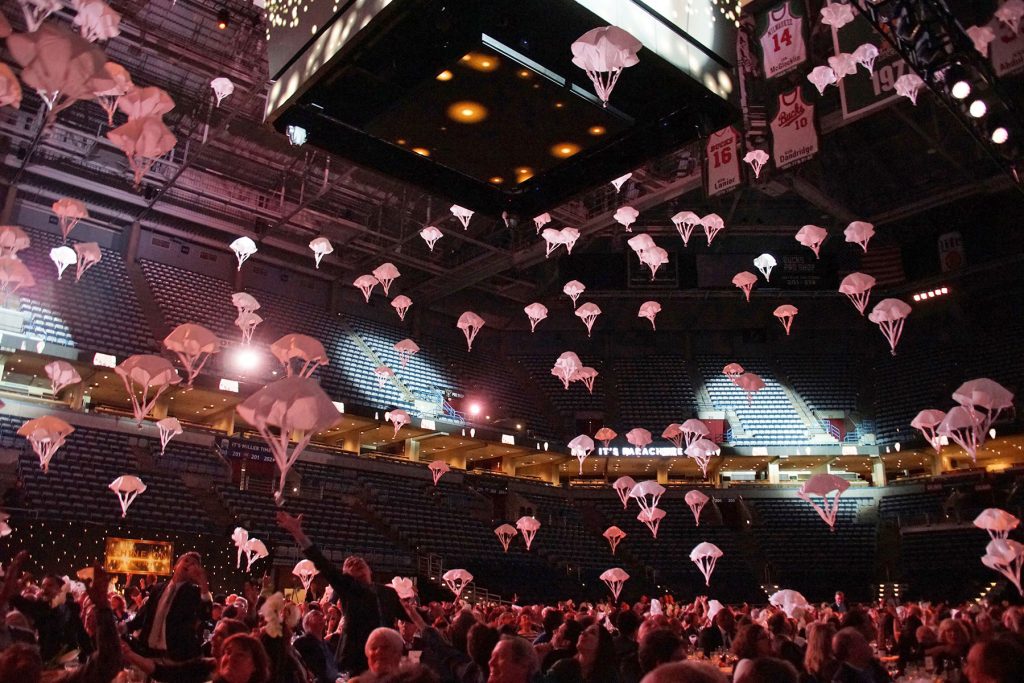
Dorothea Barron got a preview of the D-Day invasion from a watchtower on the coast of Scotland.
During the spring and summer of 1943, she and her colleagues kept watch over the troops as they tested the prototypes for two portable harbors that would be used at Normandy to ease the delivery of men and equipment to the battlefield. Whenever someone got into trouble, Barron would unfurl her semaphore flags and signal for help.
“We were watching over them, shall we say,” she said. “If they got into difficulty, we would then inform their headquarters, their people on the land. ‘Boat so and so has been hit’ and things like that.”
As an 18-year-old rating in the Women’s Royal Naval Service, Barron was a small part of the team that developed the Mulberry harbors, the system of breakwaters, pontoons and floating roadways that were built on the coast of Normandy.
Some 2 million soldiers, 4 million tons of supplies and 500,000 vehicles rolled through the two harbors by the end of 1944, contributing to Allied victory in the Battle of Normandy.
“We were English and we were going to stop the Germans from going into England,” she said. “I mean, they bombed us!”
Barron seems far younger than her 99 years.
Welcoming visitors to the thatched-roof cottage she and her late husband bought soon after the war, she whimsically tweaks the ears of a mechanical horse named Dobin, making him whinny. After taking up yoga decades ago, she still teaches once a week.
The only thing that seems to trouble her is the macular degeneration that has dimmed her eyesight.
That was not an issue during the war, when her sharp eyes were prized by the service.
“We were treated as equals, as sisters, not as some prospect,” she said. “And I feel so strongly the pressure that young girls are under today, which we never were. We were accepted as people in our own right.”
Until, that is, victory was declared. Then women were drummed out of the service with nothing more than a few extra coupons to help buy civilian clothes.
The bitterness of that remains, especially because women’s contributions to the war effort came too late for many of her fellow Wrens.
“They’d finished with you. You’d done your bit. You’d been useful then. Now you’re on your own, mate,” Barron said.
It was a crushing blow for a diminutive woman who was so determined to join the Wrens that she piled her hair up in a bun and put cardboard in her shoes after she was told she had to be at least 5-foot-3 (1.6 meters) to get in.
“I stood very tall and they said, ‘Hmmmm,'” she recalled. “And then they saw I was so determined, they allowed me to crawl in.”
So the woman nicknamed Pixie became a signaler. That meant learning semaphore to send messages during the day and Morse code for nighttime communications.
While working in the observation tower, Barron had no idea that the men she was watching over were training for the biggest operation of the war. All she knew was that it was her job to prevent them from drowning as they struggled with tides and waves and tons of steel.
She will visit Normandy for the 80th anniversary of D-Day.
“I’m going to be wondering if there’s any Mulberry left underneath the sand and have a look through the waters to see,” she said. “And I’m going to be thinking, this is where we started to drive the Germans away from Europe, from our part of Europe and the French part of Europe.”















